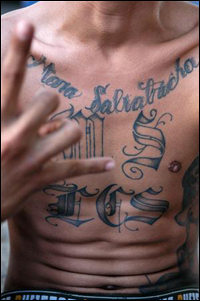LOS ANGELES
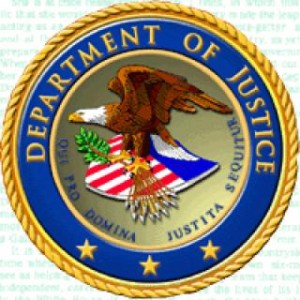
Federal and local law enforcement officials on Tuesday announced the unsealing of a federal grand jury indictment charging 23 members and associates of the Mara Salvatrucha-13 (MS-13) transnational street gang, according to authorities.
They allegedly trafficked pounds of methamphetamine and illegally possessed ammunition found in a “ghost gun,” officials stated.
Today’s takedown resulted in the arrests of 17 MS-13 members and associates who are expected to be arraigned on the 36-count indictment this afternoon in United States District Court in downtown Los Angeles.
Four of the federal defendants were already in state custody, and authorities continue to search for two defendants named in the indictment.
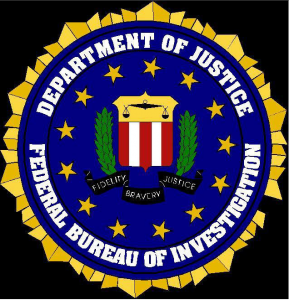 As part of this morning’s takedown, law enforcement seized multiple pounds of suspected methamphetamine, fentanyl, and cocaine.
As part of this morning’s takedown, law enforcement seized multiple pounds of suspected methamphetamine, fentanyl, and cocaine.
Authorities also seized nine firearms and approximately $94,000 in cash – with about $50,000 seized from one residence.
“MS-13, one of the largest and most violent gangs in North America, perpetuates a cycle of violence and destruction, the victims of which are most often immigrants from Central America and Mexico and other Latinos,” said United States Attorney Martin Estrada. “The widespread methamphetamine trafficking conspiracy we have charged reveals that drug trafficking is the primary method MS-13 uses to finance its modus operandi of murder and mayhem.”
“MS-13 members, allegedly at the direction of an incarcerated Mexican Mafia member, were able to wreak havoc on communities in Los Angeles,” said Donald Alway, the Assistant Director of the FBI’s Los Angeles Field Office. “This case is just the latest joint operation targeting MS-13’s transnational criminal enterprise as we continue to make an impact on their ability to intimidate and threaten law-abiding citizens in and around Los Angeles.”
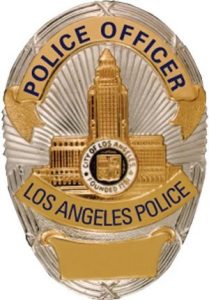 Los Angeles Police Chief Michel Moore said: “These arrests will have a meaningful and lasting impact on crime in Los Angeles by taking the leadership and the most violent of these gang members off the street.”
Los Angeles Police Chief Michel Moore said: “These arrests will have a meaningful and lasting impact on crime in Los Angeles by taking the leadership and the most violent of these gang members off the street.”
“These street gangs use the sales of illicit drugs to further their criminal enterprise and victimize our communities,” said Los Angeles County Sheriff Robert Luna.
“Transnational street gangs that prey on our communities with drugs and violence will always be a priority of HSI and their partners,” said Homeland Security Investigations Special Agent in Charge Eddy Wang.
Mara Salvatrucha was formed in Los Angeles in the mid-1980s, and the street gang is now comprised of tens of thousands of individuals in at least 10 states and several Central American countries, notably El Salvador.
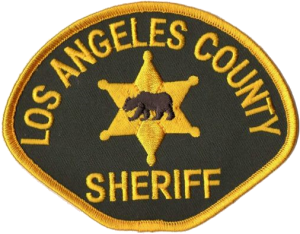 In the mid-1990s, Mara Salvatrucha became associated with the Mexican Mafia and added the number 13 to its name (“M” is the 13th letter of the Spanish and English alphabets).
In the mid-1990s, Mara Salvatrucha became associated with the Mexican Mafia and added the number 13 to its name (“M” is the 13th letter of the Spanish and English alphabets).
This case focuses on MS-13 in Los Angeles and its efforts to traffic methamphetamine in their “territory.”
The indictment returned November 8 and unsealed today alleges that an imprisoned MS-13 member who also was a member of the Mexican Mafia controlled MS-13 Los Angeles by imposing a rule on all the gang’s Los Angeles-area cliques that required them to buy methamphetamine from Herlyn Barrientos, 46, a.k.a. “Doctorazo,” of Huntington Park, and others.
Once the various cliques redistributed the methamphetamine, some profits from that distribution flowed to the imprisoned MS-13 member.
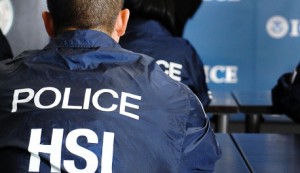 During the period of July 2021 to August 2023, the MS-13 inmate allegedly first designated Pavel Hurtado, 36, a.k.a. “Temper,” of Oxnard, and, later, Eli Grijalva, 34, a.k.a. “Skinny,” of South Los Angeles, to be the overall shot caller for MS-13 Los Angeles. In this role, Hurtado and Grijalva – the indictment’s top two defendants – allegedly oversaw MS-13’s drug trafficking activities and communicated with the MS-13 inmate to coordinate drug trafficking activities for the gang.
During the period of July 2021 to August 2023, the MS-13 inmate allegedly first designated Pavel Hurtado, 36, a.k.a. “Temper,” of Oxnard, and, later, Eli Grijalva, 34, a.k.a. “Skinny,” of South Los Angeles, to be the overall shot caller for MS-13 Los Angeles. In this role, Hurtado and Grijalva – the indictment’s top two defendants – allegedly oversaw MS-13’s drug trafficking activities and communicated with the MS-13 inmate to coordinate drug trafficking activities for the gang.
MS-13 members used violence and intimidation to control narcotics trafficking in territories controlled by the gang and narcotics sales comprised most of the revenue generated by MS-13. To sell narcotics within MS-13’s territory, one must either be an MS-13 member, an associate, or otherwise have permission from – and pay extortionate rent payments to – MS-13.
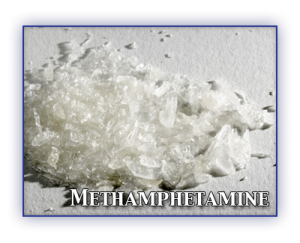
Each MS-13 member and associate, along with wholesale narcotics suppliers and street drug dealers, would receive authorization from the shot callers to sell drugs within individual clique territories.
In return, he or she would be required to pay a portion of the drug proceeds, known as a “tax,” to his or her respective MS-13 shot caller for the areas in which narcotics were trafficked.
Agustín Aquino-Martínez, 46, a.k.a. “Chino,” of Lancaster, allegedly acted as treasurer for MS-13 Los Angeles, coordinated the collection of the drug proceeds and “taxes” from each MS-13 Los Angeles clique, and was responsible for forwarding those profits and taxes to the MS-13 inmate.
The indictment charges all 23 defendants with one count of conspiracy to possess with intent to distribute and distribute methamphetamine.
Thirty-four of the indictment’s 36 counts charge individual MS-13 members and associates—including Hurtado, Grijalva, and Barrientos – with distribution of methamphetamine. One of the indictment’s counts accuses an individual gang member of being a felon unlawfully possessing ammunition inside a “ghost gun.”
Defendants are presumed innocent unless proven guilty.
If convicted, each defendant charged with conspiracy to distribute methamphetamine would face a statutory maximum sentence of life in federal prison.
The methamphetamine count is punishable by a statutory maximum of life in federal prison. The illegal possession of ammunition count carries a statutory maximum sentence of 10 years in federal prison.
The FBI’s Los Angeles Metropolitan Task Force on Violent Gangs is investigating this matter. This task force comprises the FBI, the Los Angeles Police Department, the Los Angeles County Sheriff’s Department, and Homeland Security Investigations.
Assistant U.S. Attorneys Shawn T. Andrews of the Terrorism and Export Crimes Section and Hava Mirell of the Violent and Organized Crime Section are prosecuting this case.
This case is part of an Organized Crime Drug Enforcement Task Forces (OCDETF) operation. OCDETF identifies, disrupts, and dismantles the highest-level criminal organizations that threaten the United States using a prosecutor-led, intelligence-driven, multi-agency approach. Additional information about the OCDETF program can be found at https://www.justice.gov/OCDETF.

